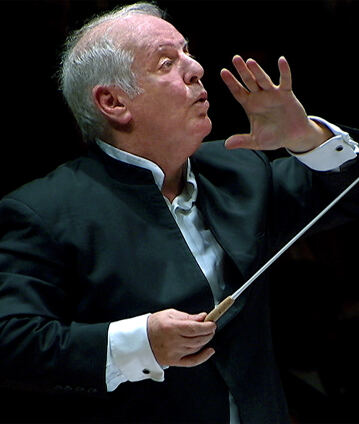Daniel Barenboim conducts Elgar’s “The Dream of Gerontius”

While Edward Elgar’s The Dream of Gerontius enjoys nearly the same esteem as Handel’s Messiah and Mendelssohn’s Elijah in his native England, almost every performance abroad is seen as a rediscovery. And it is to such that the Berliner Philharmoniker and conductor Daniel Barenboim invite you here, presenting a work with an individual musical language and the penetrating power of faith.
As the BBC once said in the introduction to a concert, Edward Elgar’s oratorio The Dream of Gerontius is seen in Great Britain as a “national monument”. However, it is virtually unknown elsewhere – Elgar’s name is associated above all with his immortal Enigma Variations. Comparisons are often used to make the oratorio more accessible to the public – but these only partially get to the heart of the work. Richard Strauss’s Death and Transfiguration is comparable, according to some: As with Elgar, it is about someone dying who ultimately achieves heavenly bliss, but in contrast to Strauss, it is not about fighting and heroism, but a spiritual vision of the transition to the afterlife.
Parallels are also often drawn to Richard Wagner’s music, which Elgar revered. The through-composed structure is doubtlessly inspired by Wagner in that there is no division into arias and choruses. And there are also some elements reminiscent of Parsifal. Overall, however, The Dream of Gerontius is a completely independent composition with an individual musical language and a penetrating power of faith. One of the first continental Europeans who recognised the value of the oratorio was, incidentally, Richard Strauss, who after a performance, praised Elgar as “the first English progressive musician”.
© 2012 Berlin Phil Media GmbH
Related interviews
Artists
Our recommendations
- Kirill Petrenko conducts Beethoven’s Ninth Symphony at the Brandenburg Gate
- Simon Rattle conducts Mahler’s “Symphony of a Thousand”
- Claudio Abbado conducts Schubert, Debussy and Mahler
- A “Finnish Evening” with Mikko Franck
- Jakub Hrůša conducts Dvořák’s Stabat mater
- Yannick Nézet-Séguin conducts works by Tchaikovsky and Ravel